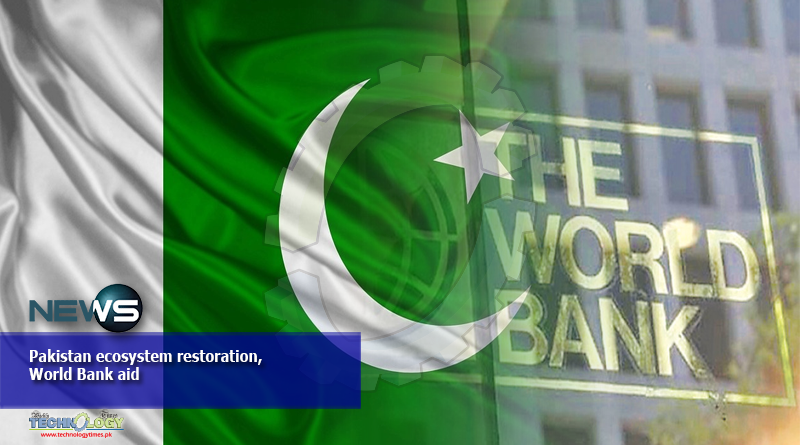The World Bank (WB) concurred to aid Pakistan in subsidizing disaster resilience and ecosystem restoration.

The World Bank (WB) concurred to aid Pakistan in subsidizing the latter’s disaster resilience and ecosystem restoration enterprises via authentic and real-time weather forecasting, better disaster risk management services and counteracting environmental challenges.
Climate change ministry media Focal Person Muhammad Saleem stated: “The World Bank has conveyed its willingness to the government of Pakistan for providing funding support for an ambitious five-year US$ 188 million “Pakistan Hydromet and Ecosystem Restoration Services (PHERS)” project, which would conclude during the financial year 2024-25,” .
He confirmed a agreement-signing ceremony which would be led by the Prime Minister’s Advisor on Climate Change Malik Amin Aslam and the World Bank’s Country for Pakistan Illango Patchamuthu.
The ceremony would be attended, among others, by the officials of the climate change ministry and other top key government officials.
While explaining components and sub-components of the project, Muhammad Saleem highlighted the two constituents of the project – “Hydro-meteorological and Climate Service” and “Disaster Risk Management”
By executing a world-acclaimed five-year Billion Tree Tsunami project in Khyber-Pakhtunkhwa and now through the implementation of the upscale initiative “10 Billion Tree Tsunami Programme“, Pakistan has progressed towards achieving a much wider ecosystem restoration initiative.
Nevertheless, the new driven project to be put in action from 2020 ahead “Pakistan Hydromet and Ecosystem Restoration Services” is an action plan which builds on evidence and experience of ecosystem restoration gained as a part of the UN Decade for Ecosystem Restoration (2020-2030) program.
Saleem also commented that this project is primarily set to fulfill task of tackling environmental challenges meanwhile driving economic growth.
Illuminating the basic objectives of the project, Saleem highlighted key objectives of the WB project for Pakistan such as facilitating transition towards environmentally resilient Pakistan by main streaming adaptation and mitigation through afforestation and biodiversity conservation.
Secondly, enabling and enhancing policy environment consistent with the objectives outlined in Pakistan’s Nationally Determined Contribution (NDC).
Also, enhancing resilience within and across forestry, agriculture, oceans and food systems, including through biodiversity conservation, leveraging supply chains and technology .
Lastly, attaining Land Degradation Neutrality (LDN) by restoring at least 30% of degraded forest, 5% of degraded cropland, 6% of degraded grassland (rangeland) and 10% of degraded wetlands in Pakistan by 2030.
According to the Germanwatch Climate Risk Index 2019, Pakistan is ranked among top-ten country only because of anti-economic impacts of climate change-caused disasters and their climate-vulnerability, Saleem stated.
Lastly Muhammad Saleem emphasized in his words: “Thus, investing in climate resilience initiatives for protecting socio-economic sectors, particularly water, energy and agriculture from fallouts of the climate change is vital for mitigating the country’s overall climate-vulnerability and protecting lives and livelihoods of the people,”
